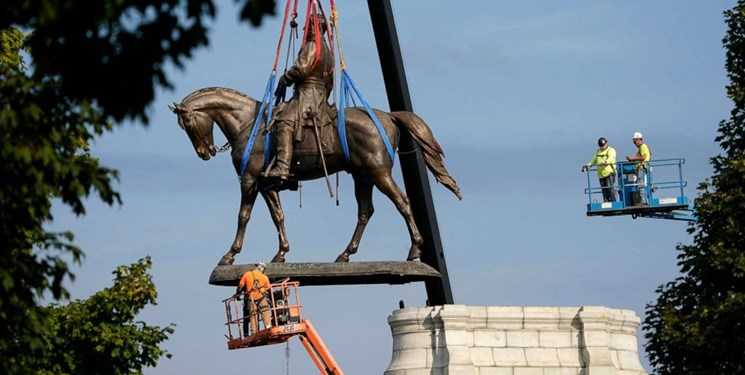One of the statues symbolizing slavery was removed in the United States.
A statue symbolizing slavery in the United States has been removed from the US state of Virginia, US media reported.
After more than a year of protests over the installation of statues symbolizing the slavery era in the United States, the statue of Robert Lee, commander of the North Virginia Allied Army during the American Civil War, from Richmond, according to the International Group of News News. Was removed.
The 12-ton statue was erected in 1890 in Richmond, Virginia, according to the ABC News website. Northum ordered the statue to be removed in July 2020 amid nationwide protests against racist symbols following the racist assassination of George Floyd.
Former US President Donald Trump has repeatedly criticized the protesters for calling for the statues to be demolished and called on the US police to crack down on them.
For example, he tweeted in July last year: “It is very sad that the states are allowing gangs of wanderers, anarchists and looters to tear apart the statues and relics of our past without knowing what they are doing. “Some of them are great works of art, but all of them, whether they are good or bad, represent our history and heritage.”
“The DC police are not doing their job, as they saw a statue being overturned and burned,” the former president wrote. These people must be arrested immediately. “(This action) is a disgrace for the country.”
Protesters across the United States last year stormed and tore down statues of iconic figures from the “Allied States” era.
The Confederations of South American States was a group of southern states that declared their secession from the United States after the victory of Abraham Lincoln in the 1860 presidential election. After this election, Lincoln pursued his campaign slogan against slavery. This prompted the southern states to form a new union and autonomy. Meanwhile, war broke out between the northern and southern states.
The use of the Confederate flag and its symbols, such as statues of its leaders in South American cities, is a controversial issue in this country.
Opponents of the confederation see the symbols as a legacy of racial supremacy, but some Southerners reject it as a memorial to their ancestors.









